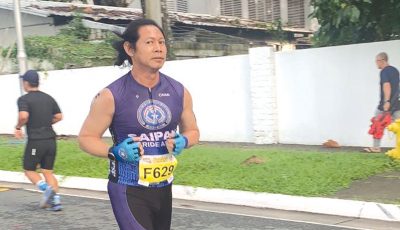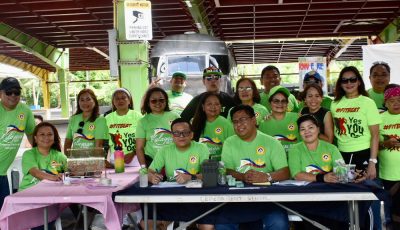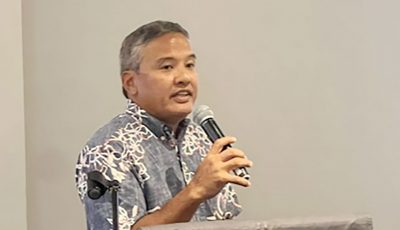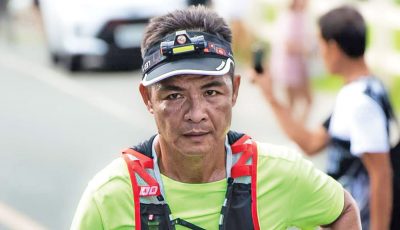PH reinstated in H-2B program
The U.S. Department of Homeland Security reinstated yesterday the Philippines on its the list of countries allowed to participate in the H-2B visa program, soon after Gov. Ralph DLG Torres appealed to DHS to allow the reinstatement, citing the CNMI’s “severe” demand for Filipino construction workers.
This new ruling would allow the CNMI to bring in construction workers under the H-2B visa program. In his letter to DHS on Monday, Torres said the CNMI economy needs more workers to develop and rebuild the community after a series of disasters. Torres originally appealed for the reinstatement of the Philippines in both H-2A and H-2B visa programs; DHS only approved the H-2B request.
Torres thanked acting Secretary of Homeland Security Chad Wolf yesterday for supporting the needs of the CNMI community and responding to his request before the start of the next administration.
“Over the next several years, the CNMI will see large construction projects that will bring new jobs for our people, new developments for our local economy, and a stronger, more resilient Marianas. Labor is a critical need for our islands, and this announcement is welcome news for our community,” he said.
In its announcement yesterday, DHS said Mongolia and the Philippines are now eligible to participate in the H-2B program effective Jan. 19, but not in the H-2A program.
There are 83 countries, including the Philippines, in DHS’ list of countries that are eligible to receive H-2B and H-2A visas.
The H-2A and H-2B visa programs allow U.S. employers to bring foreign nationals to the U.S. to fill temporary agricultural and nonagricultural jobs, respectively.
In his letter to Wolf, Torres requested consideration of once more including the Philippines on the list of countries whose nationals are eligible to participate in the H-2B visa program as a critical component of the CNMI’s ongoing efforts to support a vibrant and viable economy and rebuild from the devastation of recent natural disasters.
“Making adequate and timely progress on both these fronts would ensure our resiliency against future disasters and help keep the many residents of these islands safe in the years ahead,” Torres said.
DHS removed the Philippines, the Dominican Republic, and Ethiopia from the H-2B visa program last Jan. 19, 2019, due to the potential for abuse, overstay rates, fraud, human trafficking, and other forms of non-compliance.
On Feb. 14, 2019, Torres wrote to then-DHS Secretary Kirstjen Nielsen about the CNMI’s concern about this, citing the significance of the Philippines for the CNMI’s workforce needs, especially in light of the CNMI’s severe demand for construction labor to support the mobilization of federal relief funds following the widespread damage caused by Super Typhoon Yutu.
Since that initial letter to Nielsen, Torres said, many large-scale projects have been approved by the U.S. Department of Housing and Urban Development, Federal Emergency Management Agency, and a host of other federal agencies for the CNMI that will require a substantial construction workforce to accomplish in coming years.
“Given our geographic proximity to Asia and the limitations on sourcing labor in other non-listed countries in the region, the Philippines remains a key source country for skilled and able construction laborers to fill our urgent needs,” the governor said.
In its announcement yesterday, DHS also stated that Mongolia is no longer designated as an eligible country for the H-2A visa program because “it no longer meets the regulatory standards” for that program. The DHS statement did not clarify this point.
Citing the same reason, Samoa and Tonga are also no longer eligible for the H-2A and H-2B visa programs.
Factors that could result in the exclusion of a country or the removal of a country from the DHS list include fraud, abuse, denial rates, overstay rates, human trafficking concerns, and other forms of noncompliance with the terms and conditions of the H-2 visa programs.
Typically, U.S. Citizenship and Immigration Services approves H-2A and H-2B petitions.



























